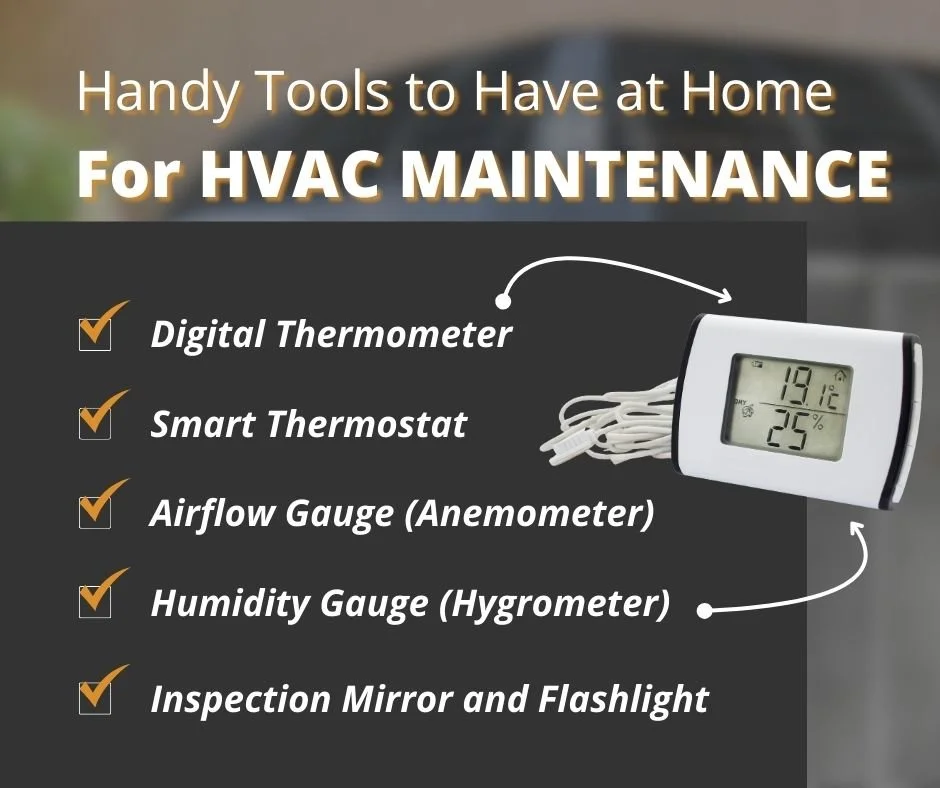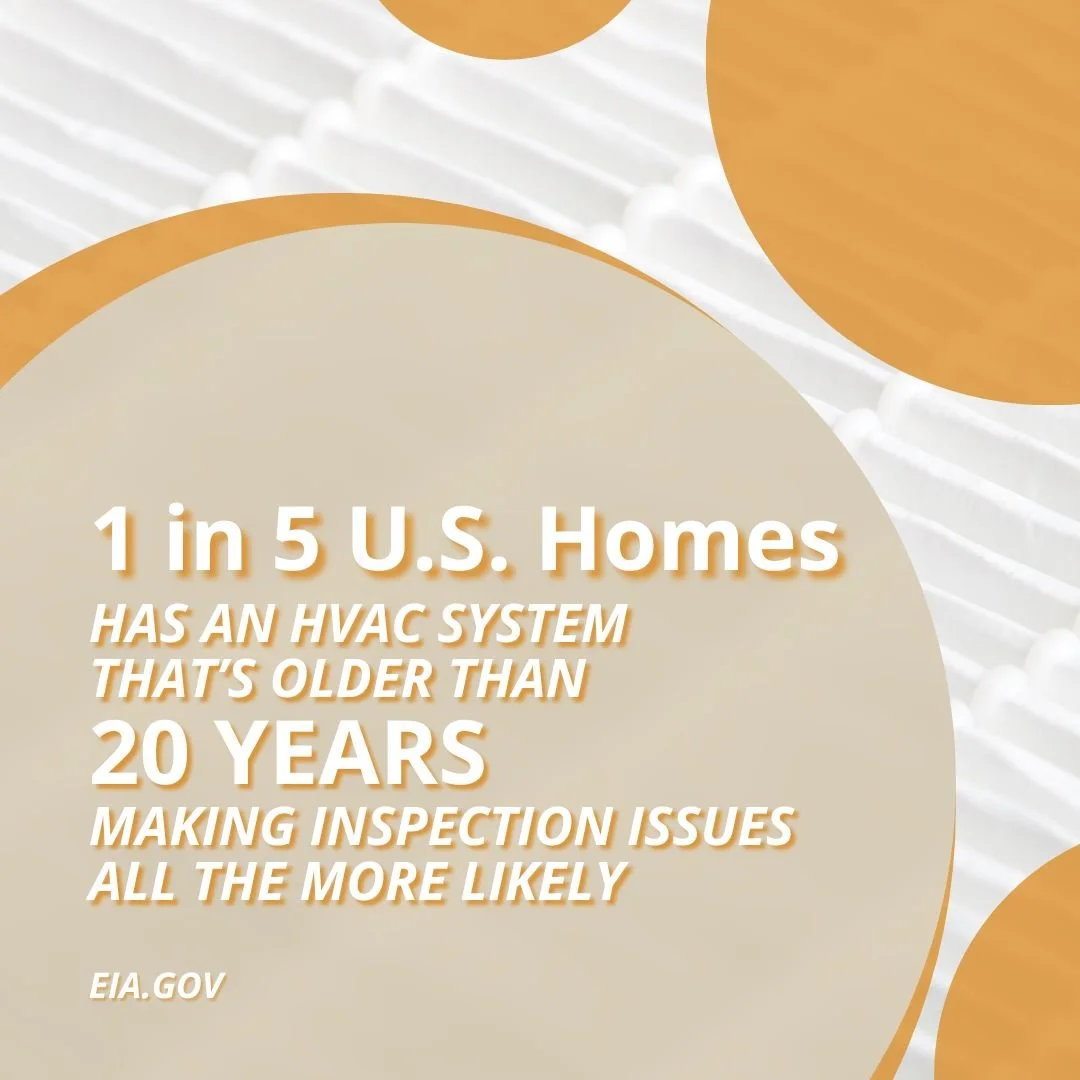HVAC Tools and Tips for Fewer 4 Point Inspection Surprises
If you're preparing for a 4-point inspection to qualify for homeowners’ insurance in Florida, your HVAC system will be one of the main areas under review. Any signs of damage, disrepair, or missing parts could delay your policy approval or raise your premiums.
The good news is that a little prep and the right HVAC tools can go a long way in preventing surprises.
Whether you're a homeowner who wants to stay ahead of problems or a buyer looking to avoid costly repairs, this guide covers the HVAC basics that matter most for insurance inspections.
Why HVAC Condition Matters in a 4-Point Inspection
Insurance companies in Florida often require a 4-point inspection for homes over a certain age.
Aging HVAC systems are among the top reasons insurers request 4-point inspections or deny coverage altogether.
The goal is to assess the condition of four key systems:
HVAC (heating, ventilation, and air conditioning)
Roof
Plumbing
Electrical
The HVAC portion of this inspection looks at whether your system is functional, properly installed, and safe. Leaks, corrosion, missing components, or lack of cooling can all become red flags. If your system is in poor shape, it may trigger a requirement to repair or replace it before the insurance policy is issued.
That's why staying proactive with your HVAC system is smart. It protects your comfort and your insurance eligibility.
Tools That Help You Spot HVAC Issues Early
You don’t have to be a technician to check on your system. These tools can help you monitor your HVAC's health before inspection day.
1. Digital Thermometer
Use this to compare the temperature of air coming from vents against the ambient room temperature.
A difference of about 15–20 degrees usually indicates proper cooling. If there's little to no temperature change, something may be wrong with the compressor or refrigerant.
2. Smart Thermostat or Monitoring System
These devices offer more than just convenience. Many track temperature fluctuations, run times, and energy usage patterns that help reveal early signs of HVAC inefficiency. A system that’s running too often may be struggling.
3. HVAC Airflow Meter (or Simple Anemometer)
A compact airflow meter can help you check whether air is actually moving out of your vents properly. Low or uneven airflow could indicate clogged filters, blocked ducts, or blower issues. These are all problems that could raise flags during a 4-point inspection.
Bonus: Many models cost under $50 and also include temperature readings.
4. Humidity Gauge (Hygrometer)
Excess indoor humidity can signal a problem with your HVAC's dehumidifying function. If your home stays above 60% humidity, it could raise red flags during inspection or indicate a malfunctioning system.
5. Inspection Mirror and Flashlight
These basic tools help you spot corrosion on coils, dirty blower components, disconnected ducts, or water damage around the air handler.
Catching these before a 4-point inspection gives you time to clean or fix issues that might otherwise end up on the report.
Common HVAC Problems That Cause Inspection Trouble
Even without tools, certain HVAC issues tend to show up in insurance inspections. Watch for:
Rust or corrosion on or near the air handler or condenser
Mold growth from condensation or poor drainage
Cracked or brittle insulation on refrigerant lines
Improperly sealed ductwork
Units not cooling or heating properly
Missing access panels or electrical covers
If any of these are present during the inspection, it may result in setbacks or require documentation showing repairs have been completed.
InterNACHI reports show that refrigerant line issues and visible rust make up over one-third of flagged HVAC issues in home inspections.
What You Can Do Before the Inspector Arrives
Here’s how to prep your HVAC system before a 4-point inspection:
Change the air filter. Dirty filters reduce airflow and efficiency.
Clear the area around the outdoor unit. Keep debris, plants, and storage items away.
Clean the drain line. A clogged line can cause moisture issues and trigger red flags.
Take photos. If you've had recent HVAC service or upgrades, documentation helps support your system's condition.
Schedule a tune-up. A licensed HVAC technician can spot problems you might miss and ensure everything is running smoothly before the inspection.
Why HVAC Issues Affect Insurance Approval
A failing or missing HVAC system isn't just a comfort issue. Insurance carriers may deny coverage or require higher premiums for homes with:
Nonfunctional or severely outdated systems
Signs of water damage around the unit
Improper installations or missing parts
By using the tools above and keeping your system well-maintained, you can avoid last-minute surprises and make the insurance process easier.
Other Related Questions and Answers
What does a 4-point inspection look for in the HVAC system?
Inspectors check for cooling function, safety, visible damage, proper installation, and overall system age. Missing parts or visible corrosion can raise concerns.
Does Taylor Made do HVAC repairs?
No. Taylor Made performs 4-point inspections and related services like wind mitigation and roof certifications. For repairs, we recommend working with a licensed HVAC contractor before scheduling your inspection.
Can HVAC issues delay my insurance coverage?
Yes. If the system is not cooling properly or shows visible signs of disrepair, insurers may withhold or limit coverage until it’s addressed.
Do I need a full inspection for HVAC if I just want insurance?
No. A 4-point inspection focuses on documenting the current condition of the HVAC, roof, plumbing, and electrical systems. It’s a simpler process than a full home inspection.
When to Schedule a 4-Point Inspection
If you're planning to sell your home or considering your homeowners’ insurance policy in Florida, a 4-point inspection is likely required. It’s smart to schedule this:
When buying an older home
Before your current policy renews
After major system upgrades
If you're unsure about your system’s condition
Taylor Made Home Inspections provides prompt, professional 4-point inspections throughout Pensacola and the surrounding areas.
We understand what insurance carriers are looking for and deliver clear reports you can count on.
Conclusion
With the right HVAC tools and regular attention, you can avoid last-minute surprises during a 4-point inspection. These small steps now can prevent delays, added costs, or even insurance denial later.
Need a 4-point inspection in the Pensacola area? Schedule with Taylor Made Home Inspections and get expert service designed to meet Florida’s insurance requirements.


